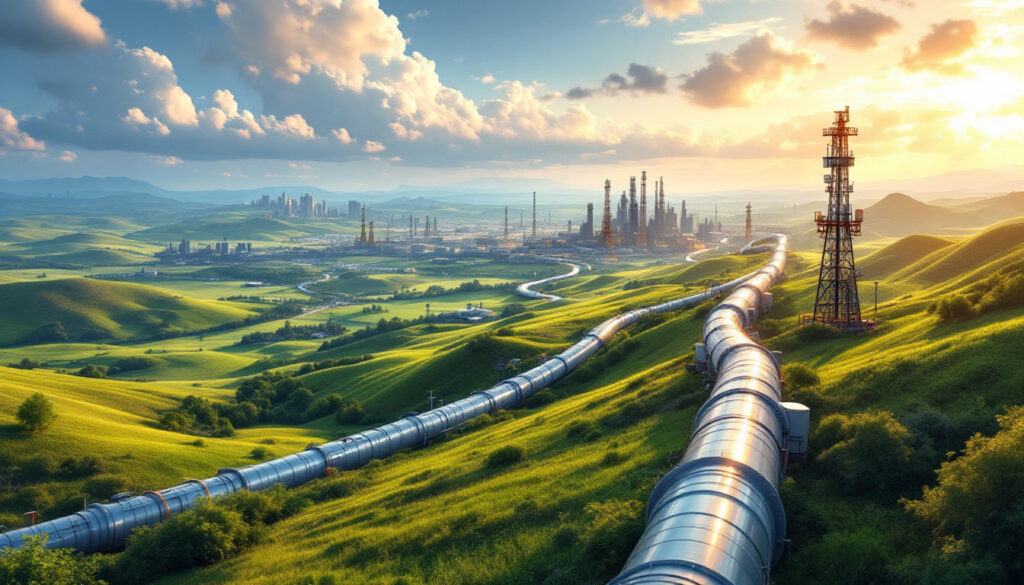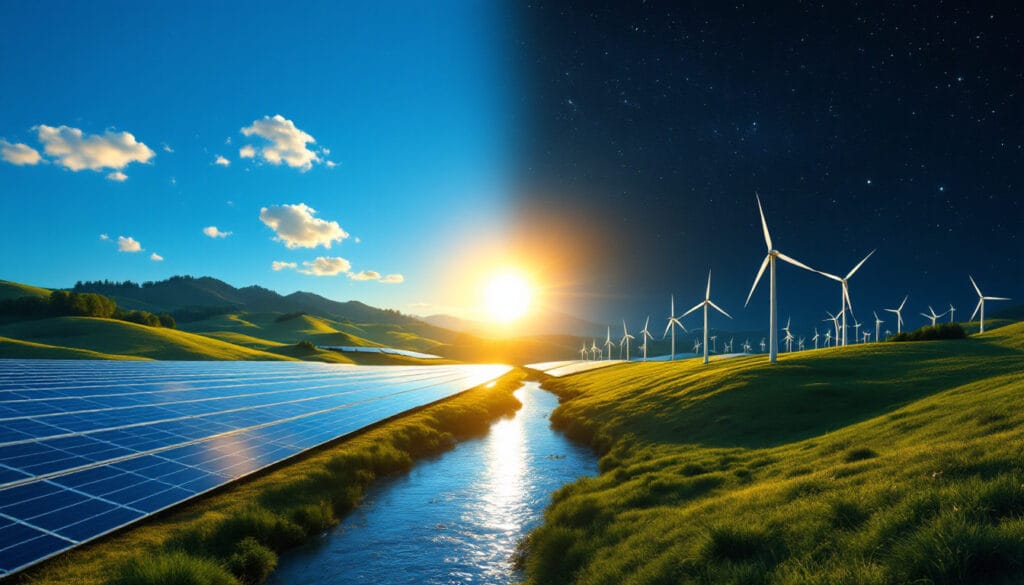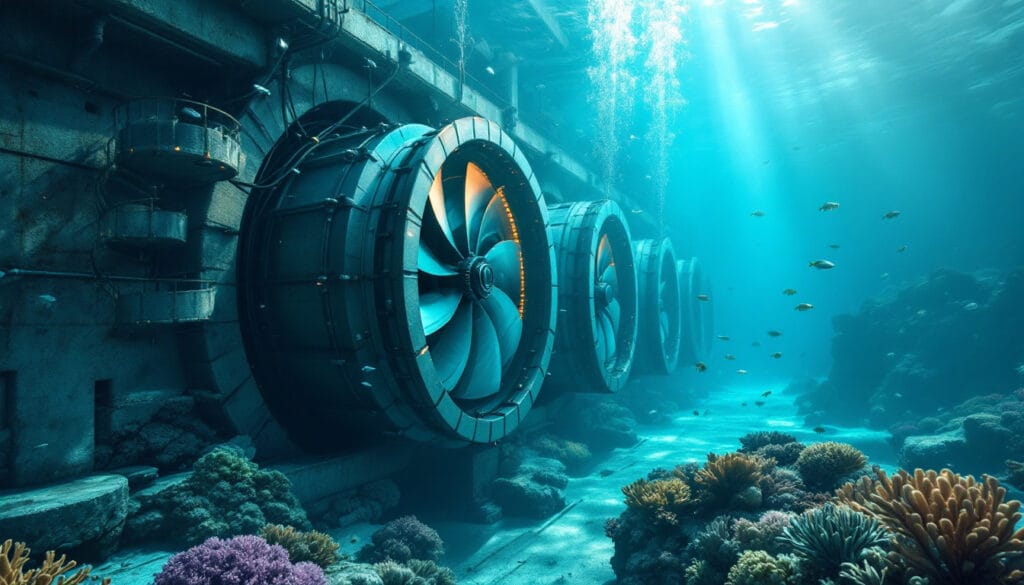Gas pipelines and oil pipelines are essential infrastructures in the energy industry. Gas pipelines, in particular, are long pipes that transport gaseous materials under pressure, mainly natural gas. Crossing continents and oceans, these steel tubes connect extraction areas to consumption zones, playing a crucial role in global energy supply. These colossal structures are both vectors of economic prosperity and geopolitical stakes, sometimes sources of tensions, especially when they cross national borders. From an environmental perspective, these arteries impose constraints on the ecosystems they traverse, highlighting crucial questions about our sustainable energy future.
A gas pipeline is a crucial infrastructure for transporting gaseous materials under pressure, mainly composed of hydrocarbons such as natural gas. Due to their impressive length, these pipelines can cover immense distances, linking extraction areas to consumption or export centers. Their design allows for stable pressure maintenance, thereby ensuring secure and efficient gas transportation to different geographical regions.
The importance of gas pipelines in the energy industry cannot be underestimated. Considered true arteries, they constitute the vital element of a complex network, supporting our increasing dependence on natural gas. The latter is used not only for energy production but also for residential and industrial heating. Gas pipelines are often discreet, hidden underground or underwater, but their role is critical for the proper functioning of our global energy infrastructure.
Gas pipelines consist of large-sized pipes capable of sustaining high pressure, essential for transporting gas over long distances. Their installation and maintenance involve significant financial investments. For example, the gas pipeline project entrusted to the Senegal Gas Network is expected to cost over 650 billion FCfa, demonstrating the scale of resources required to establish these impressive infrastructures.
However, the geopolitical stakes of gas pipelines cannot be ignored. The cooperation needed for the construction of transnational gas pipelines can lead to tensions between countries, particularly in Africa, where energy resources are a subject of desire. Gas pipelines can therefore become instruments of political power, influencing international trade and energy alliances.
From an environmental standpoint, gas pipelines are not without controversy. Their installation can impose substantial pressure on natural environments, notably wetlands and ecologically significant habitats. Thus, any gas pipeline project must take into account a thorough impact assessment to minimize negative effects on wildlife and flora.
Despite these challenges, gas pipelines represent an essential lever towards a more sustainable energy future. By facilitating the secure transport of natural gas, they contribute to the diversification of our energy sources, reducing our dependence on traditional fossil fuels. Moreover, with constant technological advancements, the efficiency and safety of gas pipelines continue to improve, making this infrastructure even more indispensable for the world’s energy future.

A: A gas pipeline is a pipeline designed for the transport of gaseous materials under pressure, including hydrocarbons, over long distances, connecting extraction areas to consumption or export zones.
A: Gas pipelines are true arteries of the energy industry, playing a crucial role in the supply of natural gas, an essential resource for energy and heat production.
A: Gas pipelines often cross vast territories, making them strategic infrastructures sensitive at the geopolitical level, with cooperations and sometimes tensions between different regional powers.
A: Gas pipelines can create pressure on wetland areas and habitats of interest, but they also play a role in the transition to a more sustainable energy future by diversifying energy sources.
A: A gas pipeline exclusively transports gas under pressure while an oil pipeline is used for the transport of oil.
Articles similaires
Thank you!
We will contact you soon.













